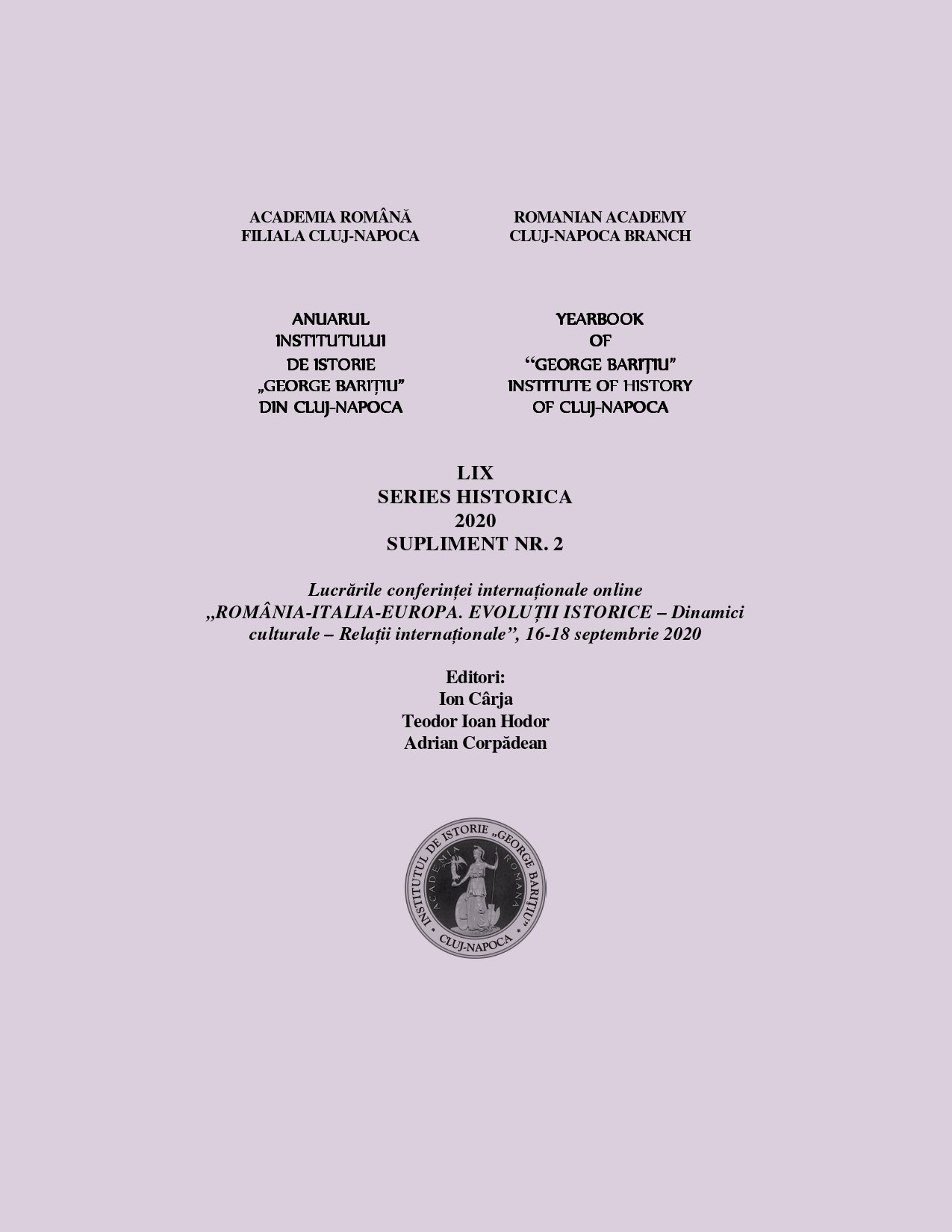Etnografie și identitate națională la Cluj după Marea Unire. Unele considerații
Ethnography and national identity in Cluj after the Great Union. Some considerations
Author(s): Laura Cristina PopSubject(s): Cultural history, Ethnohistory, Interwar Period (1920 - 1939)
Published by: Editura Academiei Române
Keywords: ethnography; folklore archive; questionnaires; national identity; Ethnographic Museum of Transylvania;
Summary/Abstract: Starting from the concrete figures that, in 1910 (when Transylvania was part of the Austro-Hungarian Empire) showed that over half of the population of Transylvania was Romanian but that this population was overwhelmingly rural and only three nations were recognized (Szeklers, Hungarians and Saxons, Romanians being a tolerated nation), we will explain the need of Romanian ethnographers and folklorists in this province to assert the identity, cultural and spiritual belonging of Transylvania to the Romanian identity. After the Great Union of 1918, the country project for Great Romania, at the cultural level, aimed at replacing the elites of the minorities with the Romanian elites and bringing the level of the culture of the masses of Romanians closer to that of the non- Romanians. Specifically, in Transylvania, the cultural conquest of cities took place: the takeover of the Hungarian university, the establishment of Romanian theater and opera, followed by the regulation of museums and the preservation of traditional culture by establishing the Ethnographic Museum of Transylvania in 1922, the Romanian Ethnographic Society in 1923, the Department of Ethnography and Folklore in 1926, the Folklore Archive in 1930. The ethnographic researches were based on the solid foundation of the traditional village, on the study of the Romanian speaking population and the applied methods-collection of ethnographic material, collection of folklore, the application of questionnaires that provided the basis for the creation of ethnographic museums, the establishment of ethnographic and folklore archives. The beginning of the twentieth century in Transylvania was marked by the need to express national identity. Therefore, ethnographers, starting from the study of traditional society-through its material or spiritual component-contributed to defining the elements of national specificity of Romanians in Transylvania.
Journal: Anuarul Institutului de Istorie »George Bariţiu« - Series HISTORICA - Supliment
- Issue Year: LIX/2020
- Issue No: LIX, 2
- Page Range: 211-216
- Page Count: 6
- Language: Romanian

